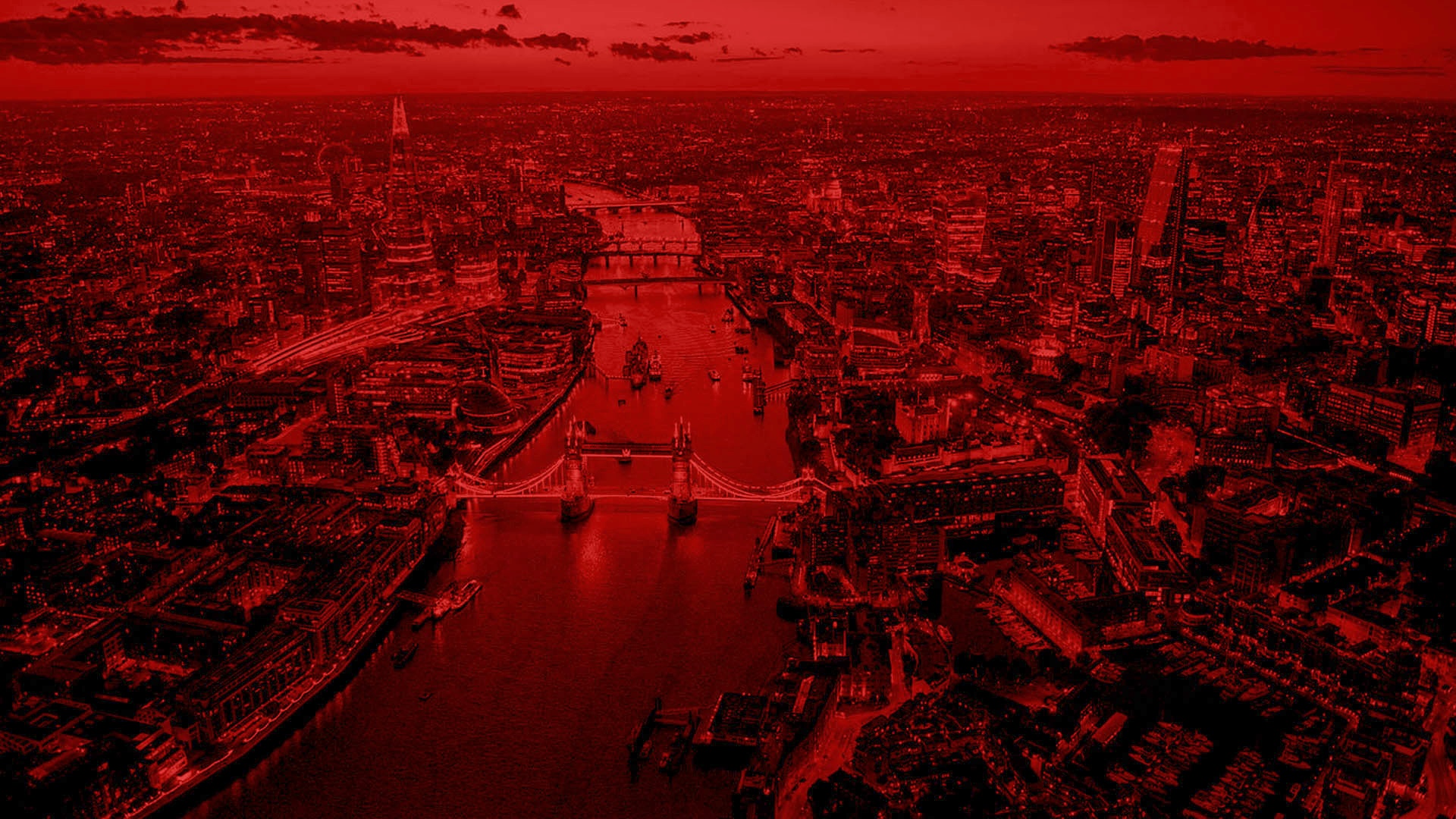

As the true, bloody tale of gangland Marseille hits cinemas, ShortList’s Alex Christian visits the French Riviera to meet the real-life players behind mob drama The Connection
"Before, it was a story of men like my father, who would keep Marseille safe and uphold the law. Now there’s none of that and the crime has gone up.” Céline Zampa’s father wasn’t a lawman. Gaëtan ‘Tany’ Zampa was the Godfather of Marseille, a key figure in La French – the criminal enterprise known by its English name: the French Connection. I’m speaking to the daughter of one of France’s most notorious gangsters in Marseille’s Le Panier district, a neighbourhood of narrow cobblestone footpaths and terraced housing, which is bristling with energy. Céline, 39, was barely a schoolgirl when her father was arrested in the fallout of the murder of Judge Pierre Michel, who spearheaded President Nixon’s war on drugs on its Mediterranean frontline.
Marseille was the world’s heroin capital in the Sixties. A postwar influx of Neapolitans and Corsicans led to a rise in organised crime and links to the Italian Mafia. From there, a conspiracy to smuggle billions of dollars of heroin into the United States developed, with Marseille providing a natural shipping point. Opium farmers in Turkey would sell their wares to the mob, extracting the heroin in labs dotted around the city, and the drug would be smuggled out of the port to the thriving US market.

A goddaughter
Tany Zampa was just a mid-level mob enforcer when the French Connection was first taking hold of Marseille. After serving time for carrying firearms in 1964, he began to invest in heroin alongside prostitution and gambling rackets, eventually controlling most of the clubs and bars in the city. After the assassination of feared mobster Antoine Guérini in 1967, Zampa, who likely ordered the hit, became the new don of Marseille’s criminal underworld. Rivals to his throne didn’t live long – shootings would happen in daylight, along busy roads now populated by tourists.
Céline is friendly and relaxed, somewhat less intimidating. “My father was the last of the greats,” she smiles. “I’ve lived in Marseille all my life, and it’s changed, it’s even more violent now. Groups of 15 to 25-year-olds, who don’t know what they’re doing, hold the power. People like my father used to sort their problems out among each other, they wouldn’t wipe out entire families or go after children.”
But surely there aren’t as many gangland killings now as in her father’s time? “There are more,” she replies. “There are loads of gangs and shootings. We have a situation that’s different – the violence has accelerated, it’s more arbitrary. The crime has gone up. There are no more rules, no more regulations.”

‘The crazy’
Céline is speaking to me because of a new film that depicts her father as the kingpin of La French. The Connection is the European side of a story made famous by Gene Hackman’s Popeye Doyle on the streets of New York. But this is a very different film to The French Connection, as the characters in The Connection are all real. The sense of realism is added to by director Cédric Jimenez, himself a native of Marseille, whose father owned a beachside nightclub frequented by gangsters.
Get exclusive shortlists, celebrity interviews and the best deals on the products you care about, straight to your inbox.
I meet Jimenez to tour Marseille and the beaches, promenades, and clifftops that bore witness to brutal violence, and where he filmed Jean Dujardin (Michel) and Gilles Lellouche (Zampa), meeting face-to-face. Jimenez is more measured on how his hometown has changed since the French Connection was dismantled following a belated government crackdown in the late Seventies.
“Marseille is a city of tradition, which means it’s slow to change,” he says. “It’s hard comparing Marseille of the Seventies to today. That scene associated with the French Connection hasn’t disappeared, it’s spread out. Before, there’d be 20 people around us right now with prostitutes. There’d be violence on the streets, shootings. It was accepted, a part of the city. Those people now hide. Before, they’d be sitting here, having a drink with you and I.”
Jimenez takes pride in telling a story so close to his, and his city’s, heart. The opening sequence – a drive-by motorcycle shooting on the picturesque La Corniche – is a reconstruction of Guérini’s murder. Jimenez conducted interviews with retired policemen and former gangsters for his research, among them 85-year-old Jacky Imbert, known in Marseille as ‘Le Fou’ (The Crazy). A former ally of Zampa’s, he was shot 23 times in the chest for double-crossing him. But he survived to tell Jimenez his tale.
“When I met Le Fou he had two or three women living with him,” says Jimenez. “He used to always have prostitutes living in his house. He’s very old and tiny, but he’s still a psycho. He still has something about him.”

Talk of the don
The following evening I join Jimenez and Céline for dinner near the Vieux-Port harbour, a symbol of Marseille’s maritime heritage. The pair have known each other a long time – they first met at the bar next to Jimenez’s father’s. “That venue belonged to my father’s sister,” Céline says. “That’s the place I met Cédric. He did the right thing, he came to my family and asked to make the film. My mother and I would go for dinner with him and share anecdotes about my father.”
Unsurprisingly, the stories Jimenez heard from the pair didn’t include much violence. Zampa protected his family from his drug empire’s devastating effects. It helps explain Lellouche’s humanising portrayal of him in the film: a conflicted man trying to do the best for his family, a man who is, nonetheless, an ardent criminal.
Céline recounts a tale about when she saw The Godfather for the first time with her brother. After hearing from others that their father was Marlon Brando, the Godfather of Marseille, they were left bemused. Jimenez finds it hilarious: “They told him, ‘What? With your trainers, glasses, scratching your balls, you’re not the Godfather.’”
She also recalled the times she and her siblings would be taken in their pyjamas to Krypton, one of the many nightclubs her father owned, by their parents at 4am so they wouldn’t be left home alone. “When I remember my father, I have memories of love and happiness,” she adds. “He instilled good values in our family.”
Many of Céline’s memories of her father are from when he was in prison. After Judge Michel was killed by gangsters associated with Zampa in 1981, the mobster went on the run, despite there being no clear link with the murder. He was finally jailed in 1983, and a year later was found dead in his cell – his death ultimately ruled a suicide.
Jimenez has his doubts. “He was found with a noose round his neck, for 11 minutes he suffocated,” he says. “The prison staff had delays getting to him, then they said it was a suicide. I don’t think he killed himself.”

Opposite sides
It’s clear from watching The Connection that Jimenez has as much respect for the powerful Zampa as he does for the crusading efforts of Michel in taking on the mob. He depicts them as opposite sides of the same coin, two alpha males determined to follow their goals.
“Jean Dujardin and Gilles Lellouche don’t look like one another, but we made them look similar for the movie,” he says. “Michel and Zampa were like rock stars in France. Many people don’t do things because they’re afraid of the consequences, but the Judge and Zampa were never afraid.
“The Judge is the hero of my film, but gangsters, as bad as they are, always fascinate. I have some affection for them because they are free. They choose a life and the biggest are the bravest.”
The Connection is at cinemas from 29 May
(Images: Getty; Altitude/Picturehouse entertainment; Vincent Lucas)
As a former Shortlist Staff Writer, Danielle spends most of her time compiling lists of the best ways to avoid using the Central Line at rush hour.
-
 10 of the coolest things we saw at MCM London Comic Con 2025
10 of the coolest things we saw at MCM London Comic Con 2025Celebrities, unreleased games, world record attempts and more!
-
 What to do for Halloween 2025 in London: Frightful food, scary screenings and blood-curdling comedy
What to do for Halloween 2025 in London: Frightful food, scary screenings and blood-curdling comedyDarkness is about to descend over London — but you can still have a wickedly good time in the capital with these expertly picked events.
